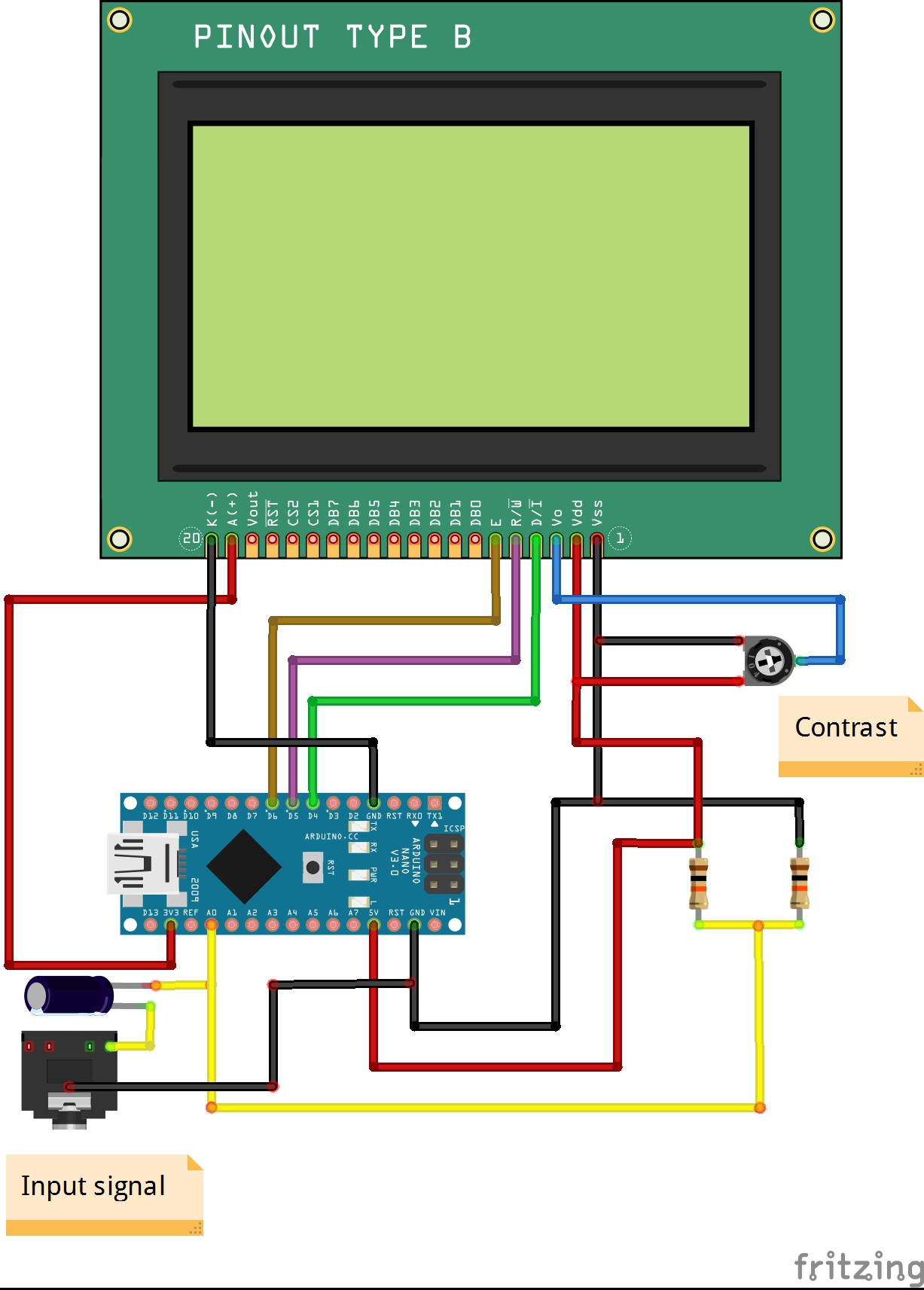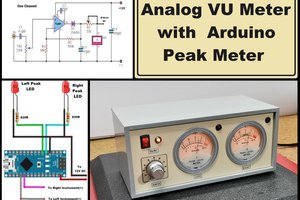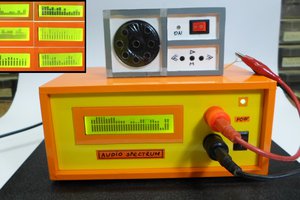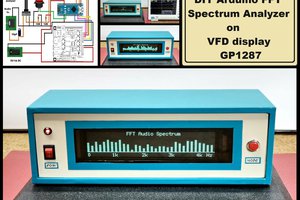The described device is exactly such a Spectral Analyzer that is made with the help of an Arduino microcontroller. Аs you can see the device is very simple and contains only a few components :
- Arduino nano
- LCD display with a resolution of 128 by 64 pixels (ST7920 128x64 LCD)
- Two resistors (10KOhm)
- potentiometer (10KOhm) and
- capacitor (1 microF)

The audio input to the Arduino is on A0, with bias at the mid point by 10K to Ground and 10K to +5V. At the input we can also set a potentiometer to control the amplitude of the input signal.
Code is also simple and it uses "fix_fft" libray which was created for this purpose
The video describes several cases where different types of signals have been analyzed:
When analyzing a sinusoidal input signal, the carrier is clearly visible and By changing the frequency of the signal generator, the position of the carrier also changes.
If we bring a rectangular signal to the input , on the spectral analyzer is clearly visible the fundamental signal, as well as the three odd harmonics x3, x5 & x7.
If we bring an audio music signal to the input, this device is actually a graphics audio analyzer that can be found in more expensive audio equipments
Finally, the entire assembly is housed in a suitable box. This is not a professional tool because it has low resolution and frequency range, but can serve as a great educational tool.
 mircemk
mircemk



 Niel Malan
Niel Malan
Consider adding a steep low-pass filter on your input to limit the audio to below the Nyquist frequency of your sampling rate. Otherwise you'll get aliasing of treble sounds.